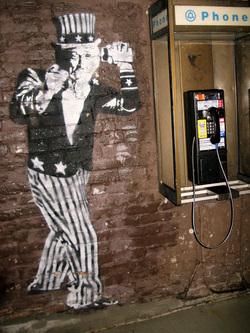| | to the AP about an unsuccessful terror plot concerning a bomb and an airliner to mark the one-year anniversary of the killing of Osama bin Laden. The story, published by the AP on May 7, 2012, did not compromise national security because the news agency agreed to cooperate. The government asked AP to delay the story until it no longer would pose a risk. It did so, but the White House continued to unsuccessfully ask for a delay so that it could make an official announcement first. (Read an AP account of the story by clicking here.) The AP has responded by demanding a return of the phone records and the destruction of any duplicates. It apparently didn’t know the records had been taken until it received a letter last Friday. "There can be no possible justification for such an overbroad collection of the telephone communications of The Associated Press and its reporters,” said AP President and Chief Executive Office Gary Pruitt.” “These records potentially reveal communications with confidential sources across all of the newsgathering activities undertaken by the AP during a two-month period, provide a road map to AP's newsgathering operations, and disclose information about AP's activities and operations that the government has no conceivable right to know." The phone lines included a switchboard and a shared fax line. Justice Department rules require any subpoena against the news media to be constructed as narrowly as possible to avoid infringing on press freedoms. But that didn’t seem to matter here. In an unrelated story, it appears the much-reported IRS abuses against conservative tax-exempt organizations included requiring them to answer questions about any media contact they had. The web site hotair.com lists the following question among several asked of these groups (read the full list by clicking here): More than a year ago, I quoted Lucy Dalglish, executive director of the Reporters Committee for Freedom of the Press, who urged reporters to be extra careful. Rather than trying to send tight-lipped reporters to jail in order to get them to reveal sources, today’s Justice Department will simply grab phone records, credit card statements or plane tickets. As a reporter and a board member with the Society of Professional Journalists, I’ve seen all sides of this issue, from promising anonymity in exchange for important information to lobbying Congress against efforts to get tougher on leaks. Good reporters always consider the possible motives a source might have for leaking information, as well as the consequences that might come from divulging the information. Some people may want to simply further their own careers, while others may want to harm the nation. But I’ve also seen government officials wield “classified” stamps just to hide information that might be embarrassing, or even criminal. Democracy benefits from this dance of information. As the AP demonstrated, and as I’ve heard from reporters at other Washington news outlets, the media often agrees to hold stories when the government presents credible reasons for doing so. The Obama administration’s apparent strong-arm tactics against leaks is a gross over-reaction and a disturbing departure from previous administrations. |
|
0 Comments
Your comment will be posted after it is approved.
Leave a Reply. |
Search this siteLike what you read here? Please subscribe below, and we'll let you know when there is a new opinion.
The author
Jay Evensen is the Opinion Editor of the Deseret News. He has more than 40 years experience as a reporter, editor and editorial writer in Oklahoma, New York City, Las Vegas and Salt Lake City. He also has been an adjunct journalism professor at Brigham Young and Weber State universities. Archives
July 2024
Categories
All
Links
|



 RSS Feed
RSS Feed

